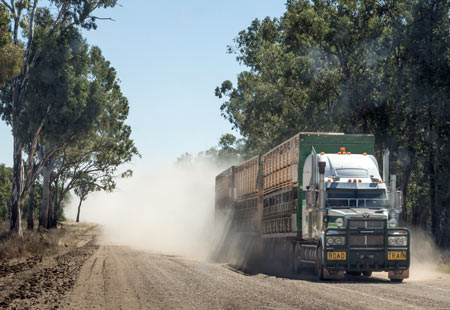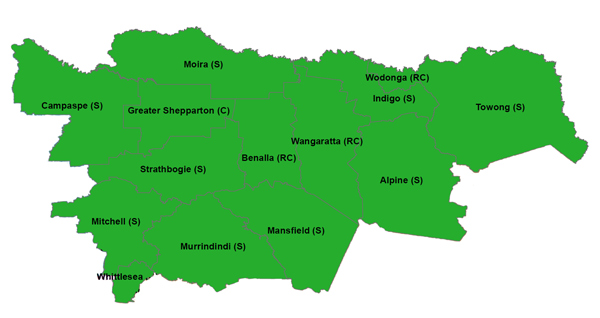
Regional Round-up is a monthly newsletter providing an overview into the environmental and business conditions affecting farmers and rural businesses in the Goulburn Valley and North East Victoria.
Dairy
High water prices and hay scarcity increased cost pressures for dairy farmers. Silage reserves have been accessed and many herds are on maintenance rations.
There have been herd dispersals and large numbers of cows are being sold as choppers, albeit at very low prices.
Reduced cow numbers and lower production through the January heat wave period has limited milk supply to processors. A number of milk companies slightly increased milk prices and incentives which is generally interpreted as a response to the reduction in supply.
Cropping
Large quantities of failed canola and cereal crops were baled for hay and silage in the north east. Operations included summer fallow spraying to conserve soil moisture.
Goulburn Valley – On-farm hay prices
Lucerne $400-$500/t
Cereal $300-$360/t
Vetch $380-420/t
Canola $220-$320/t
Source: Farmtender
Rainfall dominates discussions around plans for sowing winter crops.
Sheep
Wool remains in short supply putting upward pressure on prices.High mutton numbers were presented for sale as growers off-loaded empty ewes, poor conception rates attributable to the drought. Lower market prices resulted with the influx of stock.
Beef
Local sales saw declining prices in January as cattle were off-loaded due to hot and dry conditions. There was a slight improvement at the end of January when feedlotters and trade buyers re-entered the market after Christmas shut downs. Quality was mixed with increasing numbers of unfinished young cattle becoming the norm.
Cattle prices remained steady during February despite agents indicating there was an increase in cattle numbers offered for sale owing to prevailing weather conditions and feed prices.
Horticulture
January’s excessive heat caused large amounts of sunburn despite use of preventative measures. The high temperatures favoured some pests including mites, mealybug and codling moth. High water price has increased operational costs for growers relying on the temporary water market.
Weather
January recorded the highest temperatures on record. While February was hot, temperature was within normal ranges and a welcome relief from January. Rainfall was exceptionally low throughout January and February.There is growing concern around the lack of rain and the forecast dry winter. Rainfall is desperately needed in March.
Irrigation
Water prices reached over $500/ML in January and dropped slightly to $480/ML in February.
February 2019
Water System High Reliability Water ShareMurray 100%
Broken 34%
Goulburn 98%
Campaspe 100%
Loddon 98%
Source: Goulburn Murray Water











